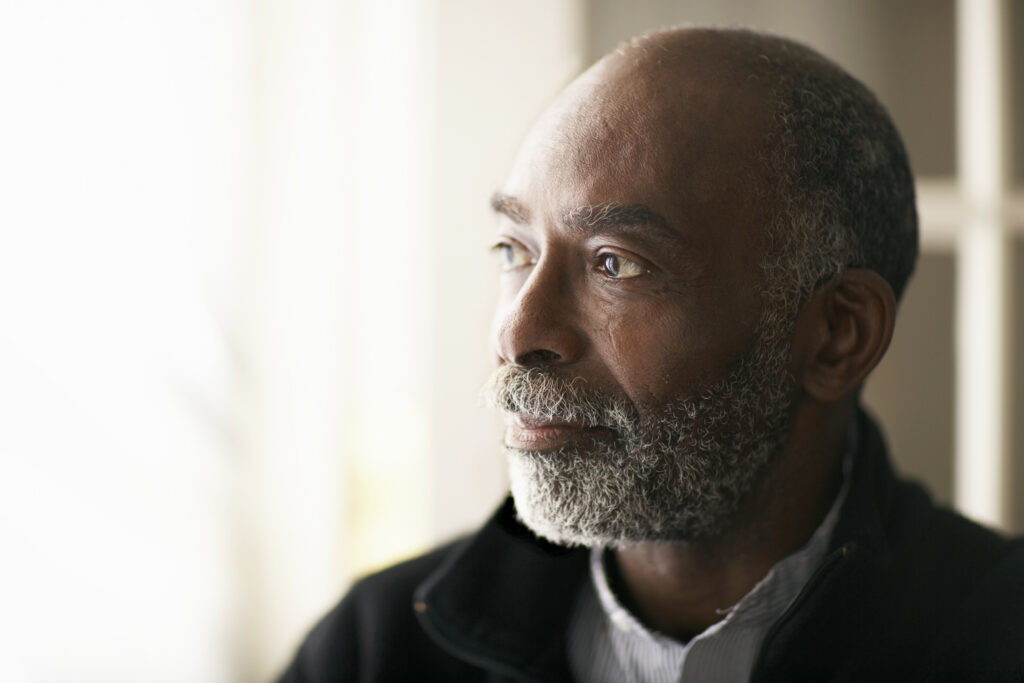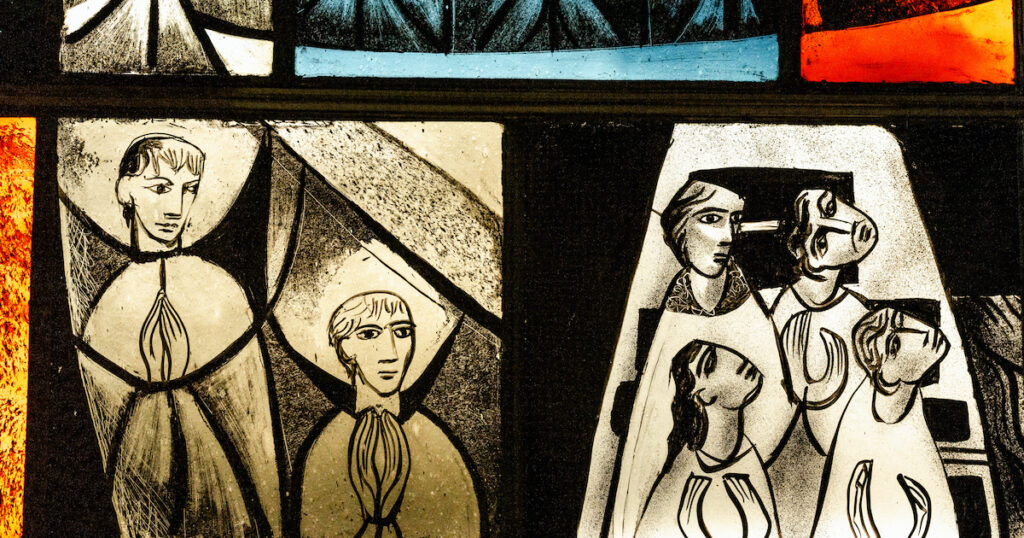The second installment of a two-part series on technology and faith published in the May 2021 issue of The Lutheran Witness. Read the first part here.
I tossed my phone to the other end of the couch. “Bah!” I exclaimed. I twitched and shivered as I came out of my social media trance.
If you have not felt the boiling over of anxiety after scrolling through social media, consider yourself blessed. Often exhausting, divisive, pointless and antagonistic to Christians, it makes you wonder why we fill our hours and in-between moments with social media. I have often dreamed of walking away from all of it to live in a cabin in the woods making tools (YouTube has a few amazingly peaceful tool-making videos you should watch).
And yet, still I’m here. Logged in. Scrolling.
I have not ditched social media. Why? Well, for one, it is my job. Two, deep down, I love it. I love social media for its glimmers of hope and positivity. Amongst the bickering and information overload, there are signs of life. Siblings reunite after years apart. Distant strangers crowdfund to rebuild a house that burnt down. Communities spring to life built on shared passions like gardening, running and Teslas. And, even when it is hard to see, the Gospel gets shared.
Gospel via social media
Can the Gospel be shared on social media? Absolutely.
Can the Gospel be shared immediately on social media? Yup, sure can.
Will that be effective? Consider this …
If you move into a new neighborhood and meet the friendly family next door, what would be the first thing out of your mouth? I doubt it would be, “Jesus died for you, and sinners are called to repent.” Nor would you hand them a postcard with your favorite Bible verse and walk away. Rather, you would exchange pleasantries, ask them about their family, favorite sports teams, hobbies, interests and so on. After getting to know them and spending time together, you grow closer and feel open to sharing your passions, your cares and your beliefs.
Does this even matter for Facebook? I say, “Yes.”
If this is how we connect face-to-face, why should it be different online? If you treat your social media presence like a one-way megaphone, your messages will get tuned out. Folks in your digital neighborhood are not looking for the fastest route to the communion rail or to hear the latest condemnation from the street corner preacher. People use social media for an escape, for entertainment and to find connections that remind them they are not alone in this world.
And yet, social media connections can and do build and strengthen relationships.
Meredith Gould talks about strengthening relationships through social media in her book The Social Media Gospel.[1] She shares an image called “The Trajectory of Engagement.” In today’s connected world, relationships move along a path that may look like this: meet online via a public thread, connect via direct message, connect via phone call, connect in person. At any given time, we are moving with others along this trajectory. We get to know people, share a laugh or insight, and then decide whether or not to keep connecting through social media as friends or mutual followers.
One example came up just today. Our church received an email from a woman three states away; she had watched a message of ours from a few years ago in which we sought to answer the question “Where is God when I am at the end of my rope?” Tomorrow, we will call her and talk with her more. That’s the trajectory of engagement at work: A video led to an email, and the email will lead to a phone call tomorrow.
As lasting relationships offline rarely form overnight, so also social media relationships will take time and will not have an immediate impact. However, this is where a persistent Lutheran witness can exist and thrive. In other words, to use social media to share the Gospel is to be in it for the long haul.
Show up
How do we do this?
We show up. Being there with and for others is the first step toward sharing the Gospel. Model what it is like to walk with Jesus. We stay connected to our friends and neighbors. We connect locally in city-specific Facebook groups. We listen, we are curious, we ask questions, we start conversations. We create content (blogs, videos and so on) that answer questions people ask through Google. We dive headlong into our God-given interests, skills and passions. Through these we find “our people” — the people we can know on a deeper level.
We are called to turn toward the places where people gather, where people suffer and where people search. Jesus did not see the muck of human life and walk away. He got into it. He washed feet. He sat with sinners (like us). You know with whom He spent time and how He was despised for it. In this time, social media is part of the call to go to the ends of the earth.
The full range of the human experience is shared daily on social media. People share their greatest accomplishments and greatest heartaches. Be there for the highs and lows. Slow your scrolling and engage.
Sign in. Connect. Have fun. Let us Lutherans be known for our presence, our desire to encourage and our desire to walk (and type) with joy in our hearts and posts. With God’s help, the lonely, the isolated, those far from God, can begin to move — even if slowly — along the trajectory of engagement and toward community, connection and purpose. It is not easy; there is a lot to wade through. I may occasionally toss my phone across the room, but I am very excited to see where the Spirit leads, and for that reason, I will continue to pick it back up.

[1] Meredith Gould, The Social Media Gospel (Collegeville, MN: Liturgical Press, 2015).






“In other words, to use social media to share the Gospel is to be in it for the long haul.”
Not necessarily. One can act as salt and light with just a few gracious words — not as one who is giving the answers, but as one who has found them, like a beggar telling another beggar where to find bread. Who knows how God will use even the briefest expression of faith conveyed out of genuine concern for another person?
Thanks for reading, Paul! I do agree with you. In my article, I was hoping to encourage people to relationship-building endeavours rather than random acts of witness. Too often, I’ve seen salt shared a little too freely without any context or prior relationship with the other person. My encouragement to readers is to invest in intentionality and to go/grow deeper. Thanks again for reading!
Thank you
For some, online worship is our only means of worship
although I understand about the “bombardments”
Take care and God bless!